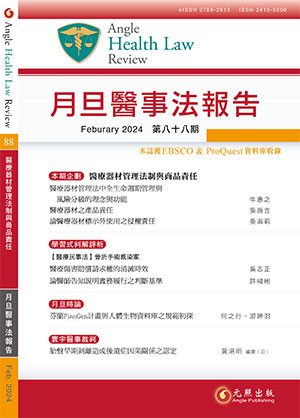原則與例外之間:再生醫療製劑條例草案「附款許可」之方法論與政策分析【醫法新論】 試閱
Between the Gold Standards and Exceptions: A Legal Methodological and Policy Critiqueon the Conditional Approval Pathway of the Latest Bill of Regenerative Drug Act
臺灣再生醫藥立法一波三折,給予更多深入評估法案良窳之時間。本文認為,即使是最新版的再生醫療製劑條例草案,其「附款許可」之相關規定在立法文字與解釋方法上,仍有不少明顯的制度漏洞與途徑不明之處,帶來產業運作與實務操作之疑慮。同時,考量歐盟附款上市許可制度之經驗,附款許可制度政策效益不明,且有遭濫用之風險,並非病人、產業、政府好的例外途徑。或許值得思考的角度是,再生製劑上市的審查標準與機制是否有改善的空間,以回應附款許可制背後代表的實際需求—換言之,改善標準,而非降低標準。
Regenerative medicine legislation had encounter numerous obstacles. Nevertheless, that very obstacle gives us a chance to perform deeper analysis for the quality and policy impact of the bills. This essay argues that even the latest bill of Regenerative Drug Act has obvious loopholes and unclear pathways for acquiring conditional approval, which bring concerns to both the pharmaceutical industry and practitioners. Meanwhile, the lessons learnt from EU’s conditional market authorization for ATMPs had demonstrated a picture of very limited benefit, together with great risks of abuse. Therefore, this essays argues that, instead of focusing on the exceptional pathway, establishing a new gold standard according to the nature of the regenerative medicine IS the right way to respond thresholders’ interests and concerns. In other words, we should improve, not lower, the standard.
133-150






